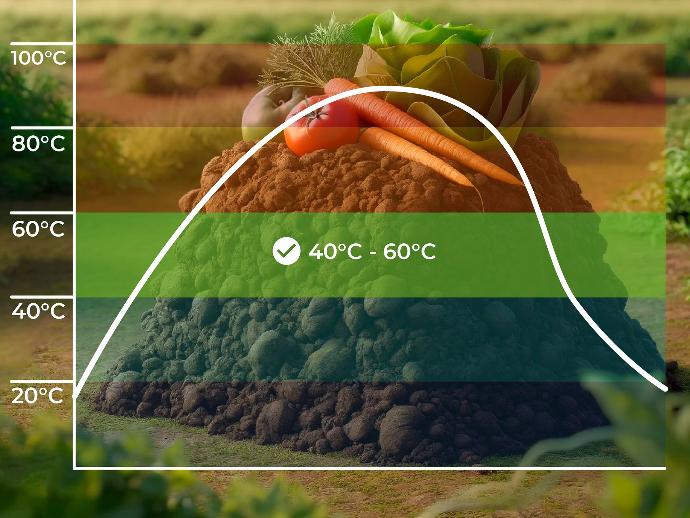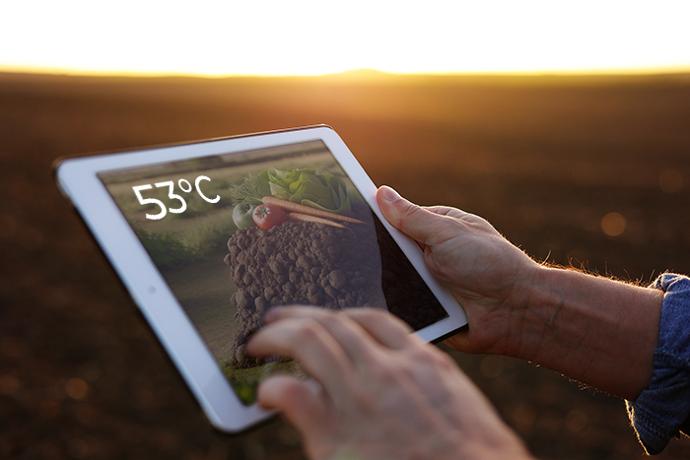Sustainable soil improvement through composting organic waste in smart agriculture

In Smart Agriculture applications, organic waste in the compost heap significantly improves soil quality by acting as a source of nutrients that are slowly released and promote plant growth. Composting this waste creates a rich, humus-like soil conditioner that improves soil structure, increases water holding capacity and promotes aeration. This not only supports plant health and growth, but also contributes to carbon sequestration and reduces reliance on chemical fertilizers.
Incorporating composting practices into Smart Agriculture promotes sustainable management by maximizing the efficiency of resource use while minimizing the environmental impact of agricultural production. This strengthens the resilience of farms to climatic changes and promotes sustainable farming practices.
Optimizing composting on Tiny Farms by monitoring soil organisms
Tiny Farms benefit greatly from closely monitoring the temperatures in their compost heaps, as optimum temperature control promotes the activity of soil organisms and ensures rapid decomposition of organic materials. Maintaining the ideal temperature not only effectively kills pathogenic organisms and weed seeds, but also sustainably improves soil quality and plant health. This contributes to resource efficiency by reducing the need to buy external fertilizers and allows micro-farmers to optimize their cultivation methods in a sustainable way.

Interested in soil moisture monitoring?
Sustainable farming starts with understanding and managing soil moisture to ensure the health and productivity of our soils. By keeping an eye on and optimizing soil moisture, we can increase crop yields while reducing water consumption. We offer IoT solutions to help you optimize irrigation.
LoRaWAN temperature sensors: Efficient use of resources in composting
A LoRaWAN temperature sensor designed specifically for compost heaps is an ideal solution for increasing resource efficiency in compost management. These sensors utilize Low Power Wide Area Network (LoRaWAN) technology to provide precise and energy efficient temperature monitoring. By providing continuous and accurate data on the temperature of the compost heap, they enable optimal control of the composting process. This helps to maximize the activity of microorganisms, accelerate the rate of decomposition and ensure that the compost remains free from pathogens and weed seeds. By optimizing the composting process, farms can improve their waste recovery, reduce the need for external fertilizers and ultimately achieve their sustainability goals more effectively.
Sensors from the iot-shop for the IoT solution compost temperature monitoring
Discover more IoT solutions for smart agriculture
Visit our page for more IoT solutions to make your agricultural operations more efficient. Find out how our specialized technologies can help you increase yields and use resources sustainably.

